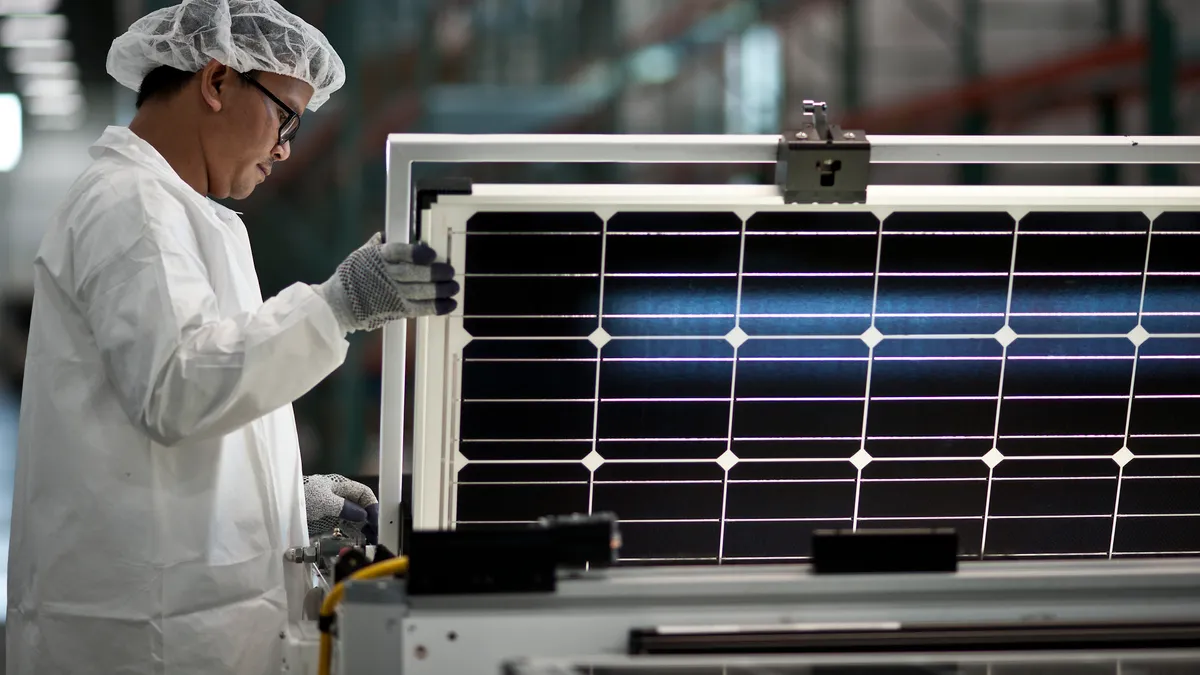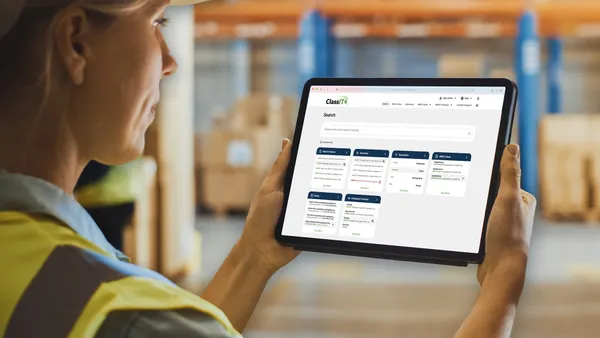Dive Brief:
- Solar panels offer potential benefits for trucking companies in retaining drivers and making more efficient use of their trucks, concludes a new confidence report from the North American Council for Freight Efficiency (NACFE).
- "Solar technology for trucks has progressed to the point where the panels on the market are flexible, thin, easily installed and reliable," the report said. "Some use cases are an excellent application of the technology and should be strongly considered for future purchases, while for other applications the cost vs. benefits should be evaluated to see if it makes sense in the specific application."
- Solar panels could help extend battery life, reduce idle time and the need for jump starts, and improve driver convenience, the report notes. Fuel efficiency constitutes only a small benefit of solar technology on trucks.
Dive Insight:
As trucking companies grapple with the ongoing trucker shortage and capacity constraints, solar technology may offer some relief — but companies must weigh the costs of implementing it.
By making life more comfortable for drivers — for example, by keeping the HVAC unit running — solar panels could help with driver retention and alleviate the trucker shortage, said Jessie Lund, program coordinator at NACFE, in an interview with Supply Chain Dive. Moreover, sustainability efforts may be attractive to a younger generation of workers, who have expressed interest in environmental friendliness.
Panels also help keep batteries powered and reduce the need for road-side jump-start assistance, the report said. In the long run, that could help trucking companies mitigate capacity problems, allowing them to make deliveries more efficiently, Lund said.
Solar panels do come at a cost, though, and depending on the application, companies will need to weigh that against the benefits of implementing the panels. NACFE lists lack of sun exposure, dirt and installation costs as potential challenges inhibiting the effectiveness of panels.
Fleets who responded for the study weren't tracking their solar panels' additional power output or impact on battery life, the report said, noting that the study team was "surprised" by this: "There seems to be a high amount of faith and a very low amount of concrete evidence with regard to the value of the panels."
"In general," Lund said, "we're seeing the pricing of solar panels come down. They're getting dramatically more efficient and cost effective."
As solar technology improves, though, battery technology likely will, too, the report said. That "may eventually reduce the need for solar to help support the truck’s electrical loads."
The report put highest confidence in solar technology for telematics support, reefer support and liftgate support. It also recommended investment in the technology for battery and HVAC support, but had lower confidence in the panels' use for hotel loads.
Ultimately, "there's no simple answer" when it comes to deciding the benefits of installing a panel, Lund noted; it depends on the application and the companies' needs. NACFE provides a calculator to help companies estimate payback of investing in technology for hotel loads and HVAC. But "most fleets we talked to who invested in solar were happy and planning to expand," she said.














